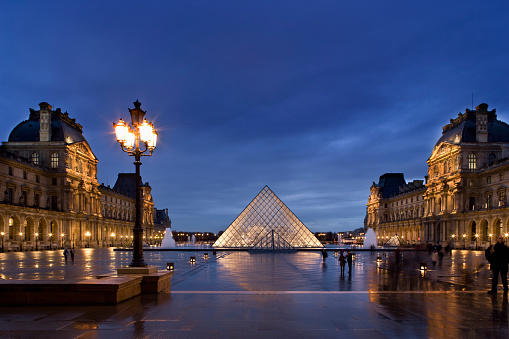The sun warms your skin and lifts your spirits, but he’s clearly not an altar boy. When you expose yourself without protection you risk at least burns and, in the long term, the appearance of melanomas if you do not protect yourself adequately … But what you don’t always think about is the photosensitivity of the epidermis, the appearance of allergy or damage to the skin barrier resulting from adding cosmetics + sun.
Want to know which resources are best avoided? Slide!
Retinol
Retinol is unstoppable to increase collagen and elastin production, but also to improve skin cell renewal. Derived from vitamin A, it is one of the main active ingredients to fight the first signs of aging. And the use of him is not limited to smoothing the texture or giving more bounce: its active ingredients tend to lighten the complexion! So inevitably the skin is much more fragile when exposed to sunlight …
“These chemical exfoliants are extremely drying and irritating. They continue to work at a speed that is difficult to control (compared to a mechanical exfoliant, which stops as soon as you have finished scrubbing) “explains Danielle Gronich, biologist at Who what to wearbefore continuing: “this means that UV exposure is intensified and the potential for damage is increased”.
The thing to avoid? Apply just before going to the beach or in the swimming pool, with the risk of seeing a series of spots appear on the face. The best thing is to stay away from this active ingredient throughout the summer period; if you find it hard to do without it, consider applying 50+ sunscreen to the top (and reapplying every hour) and avoid exposing yourself as much as possible.
AHA and BHA
AHA (glycolic acid, mandelic acid, lactic acid) and BHA (beta-hydroxyl acid and salicylic acid) they are excellent exfoliants for the skin. Among other things, they allow to even out the complexion, fight the overproduction of sebum and dissolve dead cells.
But on the other hand they refine the grain of the skin and therefore make it more fragile to UV rays. It is therefore advisable to do without it during the holiday period and reuse it in the form of exfoliating lotion or powder once back from holidays to restore brightness to the epidermis and be able to refine it to avoid the appearance of after-effects – exposure imperfections.
Essential oils
Whether pure or diluted in cosmetics, essential oils (verbena, angelica, celery, cumin, lemon, grapefruit, orange, bergamot, etc.) they are very irritating when they come into contact with UV rays. They can also, in some extreme cases, cause burns at the skin level.
What’s complicated is that many creams, shampoos, and other treatments contain it; you will therefore need to be particularly vigilant and look closely at the INCI lists of your favorite products to be sure that essential oil is not problematic in this type of situation.

hydroalcoholic gel
OK, it’s not exactly a cosmetic. But the hydroalcoholic gel is widely used, especially since the beginning of the Covid-19 pandemic! So, inevitably, this everyday tool has had its place in this article.
Composed of about 70% alcohol (and sometimes hydrogen peroxide and synthetic perfumes), has a photosensitizing effect on the skin. Result: if you use it on the beach, your hands will dry out deeply and you will even risk burning yourself, as dermatologist Catherine Oliverès-Ghouti explains. 20 minutes :
“There is a risk of what is called fascination dermatitis, a characteristic burn caused by the reaction of these substances on the skin with the sun. Clearly first a burn develops, the skin is red and irritated, then the stain takes on a brown pigmentation that can last for years. “
The scent
Since 1990, perfumes composed of bergapten (a photoactive molecule contained in citrus and bergamot essential oils) have been freed from this controversial substance. It has therefore become possible to wear the perfume before going to the beach (as long as you do it at least 10 minutes in advance).
But you should know alcohol remains very irritating, especially for sensitive skin. To avoid any risk, instead, focus on non-alcoholic scented formulas that allow you to both perfume and tan without risk. As they always say, it is health first of all!
Benzoyl peroxide
Many acne products can contain benzoyl peroxide or clindamycin (an antibiotic). The problem is that these they tend to dry out the skin but not only! According to Danielle Gronich: “They prevent the epidermis from naturally defending itself from UV rays, especially UVB rays”. She continues: “Using these active ingredients before sun exposure can lead to hyperpigmentation (dark spots) which can take months to fade, especially for darker skin types.”
And that’s it for us! Stay safe this summer.
One image credit: Unsplash.
All about the
Cosmetic ingredients
-
Sunflower oil shortage: manufacturers will change the formulas of their cosmetics and it can be risky for our skin
-
The benefits of aloe vera for skin and hair
-
CBD cosmetics: why we should try it
-
What is squalane, a miracle ingredient for increasing skin hydration?
-
This is why ceramide-rich cosmetics are essential for the skin
-
What are peptides and what miracles can they do for our skin?
-
Can your hyaluronic acid serum dry out the skin?
Source: Madmoizelle
Elizabeth Cabrera is an author and journalist who writes for The Fashion Vibes. With a talent for staying up-to-date on the latest news and trends, Elizabeth is dedicated to delivering informative and engaging articles that keep readers informed on the latest developments.




